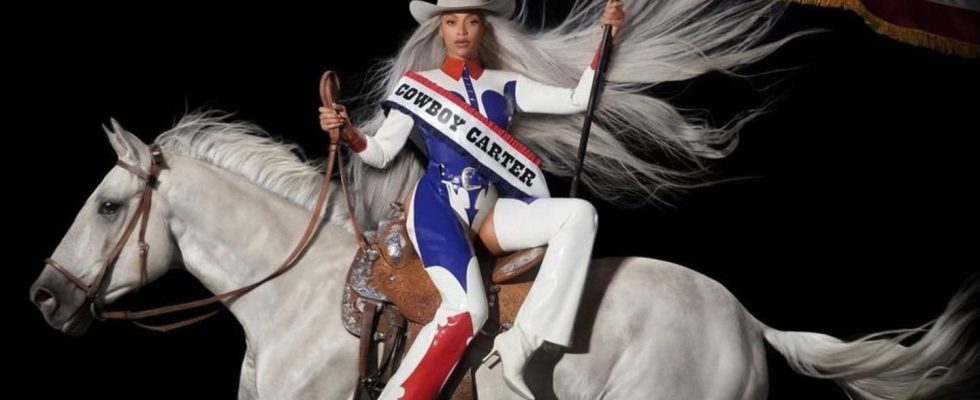Debate about new album
History Lesson with Beyoncé: Make Country Black Again!
When Beyoncé teaches history, it naturally looks a little more glamorous than we know from school
© Sony Music
With “Cowboy Carter,” Beyoncé has released more than just a new album. In doing so, it also corrects the false image we have of America.
Please imagine a cowboy. Do you have him in mind? He probably looks like this: white, Stetson on his head, not a speck of dust on his suit, on horseback and maybe a guitar on his back. After all, there is a country singer in every cowboy, as the world has learned from thousands of Wild West films. And now Beyoncé comes and says: everything is wrong. With her new album “Cowboy Carter,” on which the pop diva forays into country music, she has sparked a fierce debate about how white the hillbilly sound actually was. Is it brilliant marketing? Or a long-overdue correction of the “Wild West” and American history?
Beyoncé’s country song is canceled because she is black
It’s both. Beyoncé knows that every album needs a good story – and the story for “Cowboy Carter” goes like this:
Stage 1: In a sensational spot, Beyoncé announces her new record at the Super Bowl in February, in front of 800 million viewers worldwide.
Stage 2: The first two songs appear at the same time, “Texas Hold ‘Em” with a strumming banjo and “16 Carriages” with sobbing steel guitars.
Stage 3: The conservative country community cries out angrily for smelling salts, one station even bans both songs from its program – but Beyoncé fans force it to include the songs again with a mass protest.
Stage 4: “Texas Hold ‘Em” reaches number one on the Hot Country charts. Record! Beyoncé is the first black singer Music history that achieves this.
Stage 5: Just in time for the album release, Beyoncé posts on X why she recorded it in the first place. “It was born from an experience I had several years ago where I didn’t feel welcome at all.” In 2016 she made a guest appearance at the Country Music Awards, which earned her vicious criticism. With the new album, she is now claiming country music not just for herself, but for all Americans of color.
However, Beyoncé’s tutoring session is not only successful advertising, but is still sorely needed, because cultural racism is still hidden in the whitewashed image of country and cowboys, as the first reactions to “Texas Hold ‘Em” showed. Thanks to Beyoncé, it’s slowly leaking out that up to a third of all cowboys were black. And how senseless a separation between “white” and “black” music actually is.
It is still risky for African Americans to sing country music
The banjo, for example, goes back to African string instruments such as the Akontig, which were combined with the European guitar. Colored country singers were also not uncommon, they just didn’t get a chance on the white market: Charley Pride was one of the most successful stars of the 60s and 70s with 29 number one hits – but the Country Music Hall of Fame didn’t include him until 2000 rows (alongside two other black artists). At the beginning of Pride’s career, his skin color was even kept a secret: so as not to jeopardize the success of his records, but also because people feared racist attacks on him. Big names like R&B icons Ray Charles, Tina Turner and Aaron Neville produced country songs – and yet today it is still considered risky for black artists to put on the cowboy hat.
This is what Beyoncé has now done – and in such a way that no one can miss it: the album artwork includes a glamor portrait in which she is on horseback waving the American flag like a Hollywood rodeo rider. There must be so much hype. Because as Beyoncé herself says: “This is not a country album. This is a Beyoncé album.”

